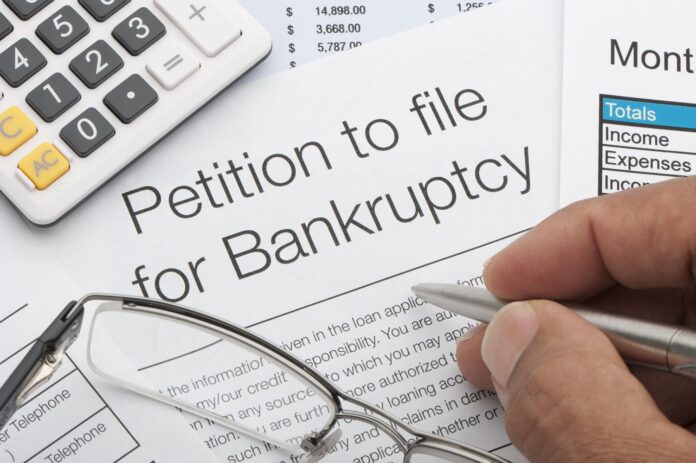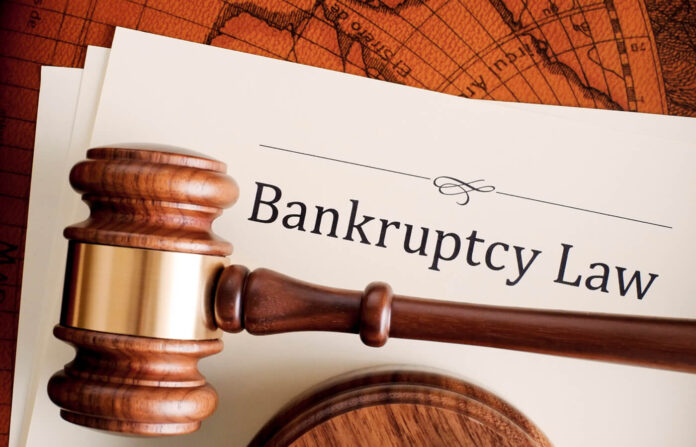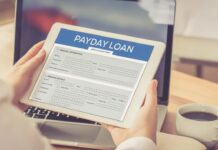
Entire demographic groups were already put under increased financial pressure to pay their bills and cover any outstanding debt following the myriad professional and personal challenges brought on by the COVID-19 pandemic.
As a result of the latest political fluctuations, there are reduced deliveries of natural gas and oil, a massive increase in the costs of these essential resources, and surging inflation. The Bank of England projects that inflation in the UK could grow as high as 13%, while nearly all of the EU countries reported inflation of around 10%.
The most heavily impacted and vulnerable groups of people may now be dealing with such unfavorable circumstances that they could be crumbling under unmanageable levels of debt. In these cases, it may be wise to look for solutions such as declaring bankruptcy. Applying to make yourself bankrupt could have massive consequences, and such a decision should be taken only after careful consideration.
It is crucial to consult a professional debt advisor or insolvency practitioner firm, such as Hudson Weir, in order to determine whether pursuing personal bankruptcy is indeed the right call. The experts will examine all of the unique circumstances of each case and help the struggling individual pick the best course of action going forward.
What Is Bankruptcy?

Bankruptcy is a process that helps people who are struggling with unmanageable debt get a fresh start. The term “bankruptcy” is used to describe both the legal status of an individual who has been declared bankrupt as well as the process itself.
In order to declare bankruptcy, an application must be submitted to the court. This is a formal process that must be handled by a licensed insolvency practitioner. The debtor will be required to attend a meeting with the Official Receiver, who is appointed by the court to oversee the bankruptcy case.
Once an individual has been declared bankrupt, they will be subject to certain restrictions and will be required to comply with certain requirements set forth by the court. For example, they may be required to surrender any assets that are not essential for their basic needs or daily living expenses. They will also be prohibited from obtaining new lines of credit or taking on any additional debt.
Applying For Bankruptcy
Applications for bankruptcy are examined by a special member of the Insolvency Service called an ‘adjudicator.’ As for the application itself, it can be submitted online, and it costs £680. This sum could be beyond what the individuals seeking bankruptcy could realistically pay. That is why the money could be paid in several installments or could be covered with the help of a charity.
Typically, applicants will receive a letter from the adjudicator within 28 days saying whether they have been made bankrupt. Applicants could also be asked to come for an interview if more information is required. If approved, the name and details of the applicant will be published in the Individual Insolvency Register.
In most cases, the bankruptcy will last for 12 months, after which the individual is released (‘discharged’) from their debts and any of the imposed bankruptcy restrictions. Keep in mind that there is a separate process through which someone else could apply to make a person bankrupt.
Restrictions Under Bankruptcy

While the bankruptcy is active, the involved individual will be required to follow numerous restrictions that encompass different areas of their personal or professional activities. For example, they cannot act as a director of a company or create, manage, and promote a company without first obtaining a court’s permission.
People in bankruptcy are forbidden from working as insolvency practitioners and authorized debt specialists or managing a business with a different name without telling their business partners and clients that they are bankrupt. Failing to comply with the imposed restrictions could have legal repercussions.
Your Home And Assets
As part of the process, you will have to appoint a ‘trustee’ who will manage the bankruptcy. This could be an official receiver or an insolvency practitioner. They will take over certain assets as well as any bank and credit cards for accounts that will no longer be available to use. Some assets could be sold in order to pay for the bankruptcy debts, but items needed for work-related activities and household items (clothing, furniture, etc.) are usually not transferred.
In general, the bank accounts of the bankrupt individual will be frozen, but the trustee could release funds from them in case of emergencies or if the funds are a partner’s share as part of a joint account. Under specific circumstances, pension payments could be counted as income and used towards the repayment of outstanding debts.
The equity and home ownership will also have to be transferred to the appointed trustee. Doing so will prevent the sale of the property for any reason besides the repayment of debts. Keep in mind that the sale of the property could be stopped or delayed in cases where the value of the equity is less than £1,000 or if more time is needed to organize the living arrangements for a child or partner.
Debts Not Written Off By Bankruptcy

When the period of the bankruptcy ends and the individual is discharged, they will be released from most of the debts owed at the date of the bankruptcy. However, certain types of debt will still remain – debt resulting from fraud, sums owed under family proceedings, damages for personal injuries, or any debts that were not included in the bankruptcy. Your credit score will also be impacted as the bankruptcy will stay on your credit reference for a period of 6 years from its initial date.
Bottom Line
Bankruptcy is a legal status of a company or individual who cannot repay debts. When a person declares themselves bankrupt, they are asking the courts to allow them some relief from their debts. This can be in the form of having some or all of their debt written off, or by reorganizing their financial affairs so that they can start repaying their debts over time. There are different types of bankruptcy and each one has its own restrictions. If you’re considering declaring yourself bankrupt, it’s important to understand what this process entails and how it could impact your home and assets.











